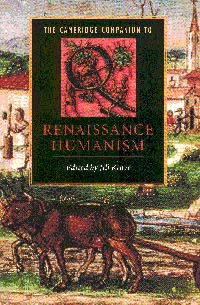Book contents
- Frontmatter
- 1 The origins of humanism
- 2 Classical scholarship
- 3 Humanism in script and print in the fifteenth century
- 4 The humanist reform of Latin and Latin teaching
- 5 Humanist rhetoric and dialectic
- 6 Humanists and the Bible
- 7 Humanism and the origins of modern political thought
- 8 Philologists and philosophers
- 9 Artists and humanists
- 10 Vernacular humanism in the sixteenth century
- 11 The new science and the traditions of humanism
- 12 Humanism and Italian literature
- 13 Humanism and English literature in the fifteenth and sixteenth centuries
- 14 Humanism and seventeenth-century English literature
- A guide to further reading in English
- Biographical index
10 - Vernacular humanism in the sixteenth century
Published online by Cambridge University Press: 28 May 2006
- Frontmatter
- 1 The origins of humanism
- 2 Classical scholarship
- 3 Humanism in script and print in the fifteenth century
- 4 The humanist reform of Latin and Latin teaching
- 5 Humanist rhetoric and dialectic
- 6 Humanists and the Bible
- 7 Humanism and the origins of modern political thought
- 8 Philologists and philosophers
- 9 Artists and humanists
- 10 Vernacular humanism in the sixteenth century
- 11 The new science and the traditions of humanism
- 12 Humanism and Italian literature
- 13 Humanism and English literature in the fifteenth and sixteenth centuries
- 14 Humanism and seventeenth-century English literature
- A guide to further reading in English
- Biographical index
Summary
Cato in yeares learn't Greeke, for Romanes w[e]re
To deale with Grecians, and in Greeke was writt
Philosophic of nature, manners, witt:
Which grace to him, good to his Rome might reare.
Owr English Cato then (who manie a yeare
Censorious maie in vertues Senate sitt)
It maie without disparagement befitt
To knowe Italiane; since Italianes beare
Inteligence with moste, and writing showe
What Greece or Rome, ages, or places knewe:
They best inuent, or best inuented choose.
Which yow my lord maie more exactlie knowe
(If knowledge more exact maie be in yow)
If yow sometimes this Dictionarie use.
The scholar-diplomat John Florio, translator of Michel de Montaigne's Essais into English (1603), copied this sonnet of his friend Matthew Gwinne into a presentation-copy of his Italian-English dictionary (1598) destined for the Lord Keeper of the Great Seal of England, Sir Thomas Egerton. The language used points to a late humanistic context. The central idea is still the discovery and use of ancient wisdom, compared here to the gathering of secrets by 'inteligence'. Humanist logic's classification of the two aspects of all intellectual activity is prominent: the finding and storing, or inventio ('invention'), of philosophical matter; and the choice and deployment, or iudidum ('judgement') of that matter in specific contexts - the whole process amounting to the successful mediation of ancient wisdom (lines 8-11).
- Type
- Chapter
- Information
- The Cambridge Companion to Renaissance Humanism , pp. 189 - 202Publisher: Cambridge University PressPrint publication year: 1996
- 8
- Cited by

